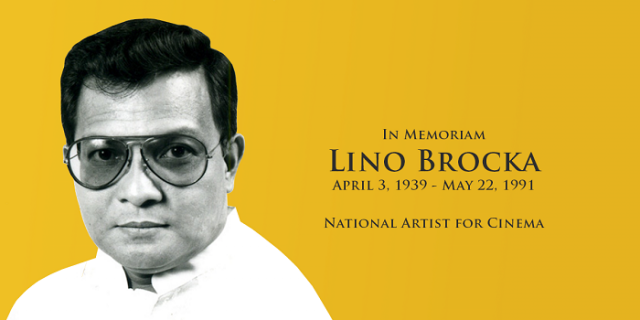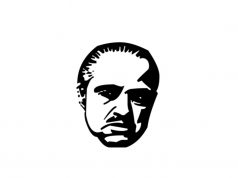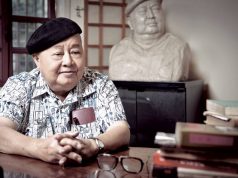
MANILA, Philippines — It has been more than two decades since renowned filmmaker and activist Lino Brocka passed away. The days leading up to what would have been the celebrated auteur’s 79th birthday saw a stream of nostalgia pass over not just cineaste circles and film bodies but also activists and fans from other countries.
This was the theme song of the film “Natutulog Pa ang Diyos” starring Ms. Lorna Tolentino, Mr. Gary Valenciano, Mr. Ricky Davao, directed by Lino Brocka, which came out in 1988. I caught it on the PBO channel years ago & it was an instant favorite.
— IDD (@IrishDDizon) March 30, 2018
Lino brocka was a gift from the heavens. I’m so glad Filipinos are starting to create and notice more films that are similar to those he’s done. B r i l l i a n t
— ??? (@krstnchrlz_) March 30, 2018
Brocka’s legacy of dissent beyond film was cited by these users for saluting the late director on his birthday.
One greeting came from activist and Bagong Alyansang Makabayan(BAYAN) secretary general Renato Reyes j.r, who called Brocka “National Artist and freedom-fighter.”
Today is the birthday of National Artist and freedom-fighter Lino Brocka. pic.twitter.com/2jGp3NTnQM
— Renato Reyes, Jr. (@natoreyes) April 3, 2018
Brocka was also remembered by film fans from other countries. A number discussed the recent announcement that Brocka’s “Manila sa Kuko ng Liwanag” would be reproduced by The Criterion Collection, a body which has reproduced for contemporary consumption several classic films.
I’d go for Lino Brocka’s “Weighed… but found Wanting” https://t.co/zlPHVFQjU3
— mika (@schneelandblog) March 15, 2018
[A lire ou à relire] 08. Manille / Maynila Sa Mga Kuko Ng Liwanag (1975 https://t.co/VovGo0sY1W #1975 #bembolroco #hildakoronel #linobrocka
— Pichenettes (@Pichenettes) March 16, 2018
Born on April 3, 1939 to Regino and Pilar Brocka, Catalino or “Lino” grew up in Sorsogon and was exposed to both arts and politics, owing to the presence of his father, who was artistically and musically inclined but also involved in politics.
Brocka’s biography on the Bantayog ng mga Bayani website narrates how Regino’s murder left the family in poverty. Lino and his mother did odd jobs to survive.
In college, Brocka’s interest shifted from pre-law to literature and the arts. Following initial rejection, Brocka joined the UP Dramatics Club, where he met fellow future national artist Behn Cervantes.
He was initially rejected by the club by reason of his “probinsiyano” accent, prompting him to study American films. He would manage to join as a stagehand.
Later, Brocka would experience poverty in the US, after he decided to travel overseas to work as a Mormon missionary.
It was upon his return to the Philippines that his career jumpstarted. Brocka joined the newly-started Philippine Educational Theatre Association (PETA), and was approached to direct by LEA films. Among his first films were “Wanted: Perfect Mother,” ““Santiago,”” and “Tubog sa Ginto,” all of which were critical successes.
He later left LEA films despite initial success to start CINEMANILA, but the venture folded.
Despite being mired in debt due to CINEMANILA’s failure, the ‘70s marked the advent of Brocka’s streak of groundbreakers, with his films “Maynila sa Kuko ng Liwanang”, “Insiang”, “Jaguar”, and “Bona” giving both local and international acclaim.
”Jaguar” in 1977 made him the first Filipino to enter the prestigious Cannes Film Festival.
The ‘80s saw Brocka lean towards activism. He founded the Concerned Artists of the Philippines in 1983, a group that spoke out against the Marcos regime.
The following year, he directed “Bayan Ko”, a film which incurred the wrath of the administration.
He and Behn Cervantes were imprisoned for 16 days in 1985 for joining a nationwide jeepney transport strike.
Following his release, he joined the Coalition for the Restoration of Democracy (CORD).
Brocka passed away in 1991 in a vehicular accident on the way to Tandang Sora, Quezon City at the age of 52.
He was named posthumously as a National Artist for Film in 1997.
Translated for foreign audiences as “Manila in the Claws of Light,” Brocka’s magnum opus has also been reproduced for Blu-Ray by the British Film Institute.








